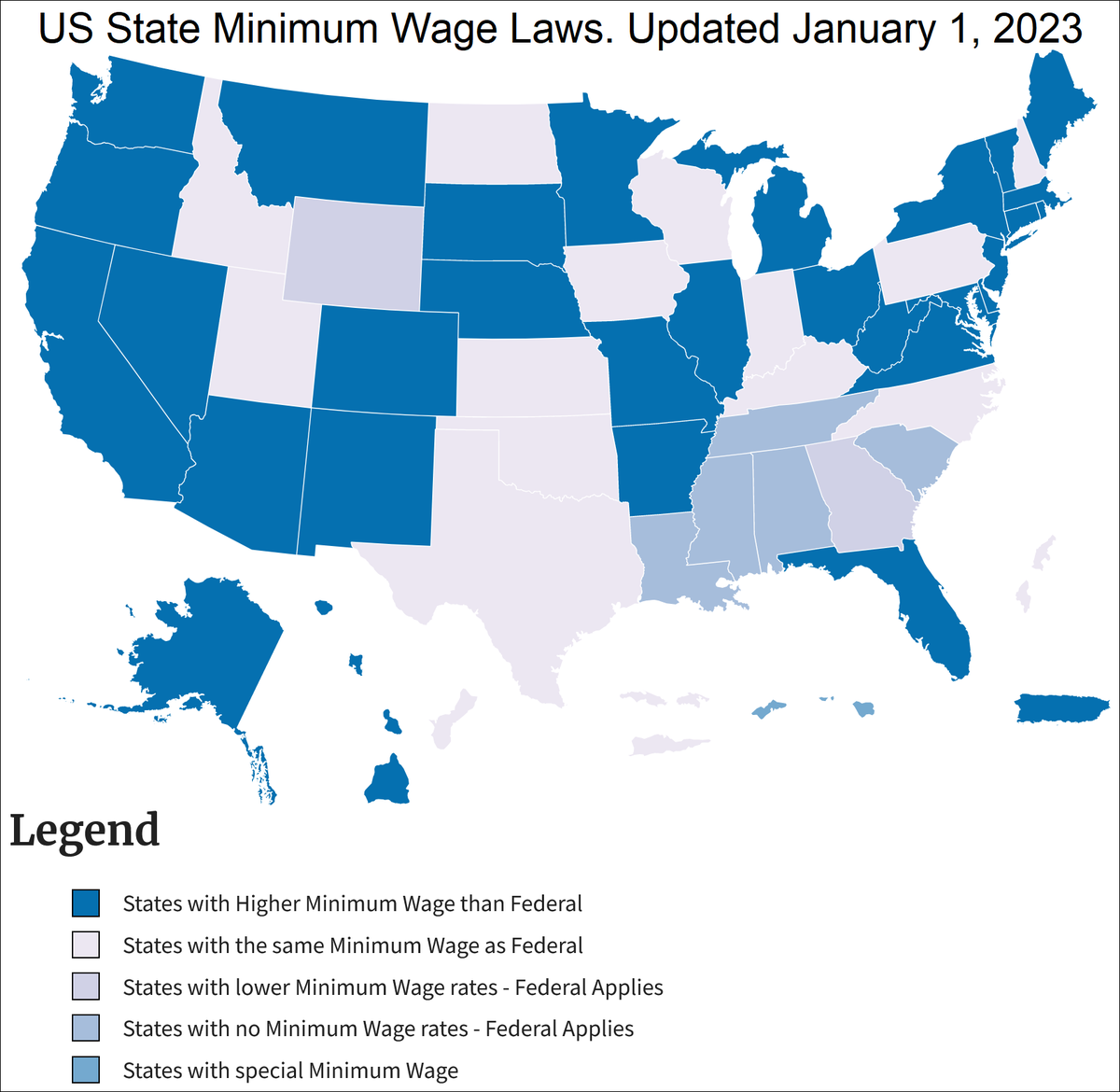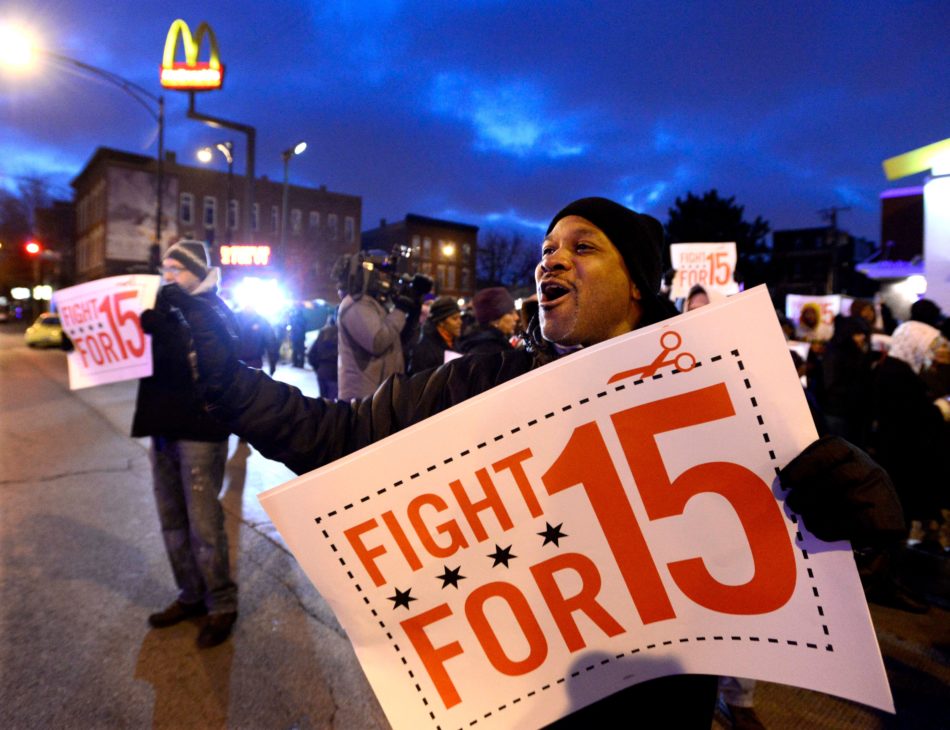One of the arguments against the $15 minimum wage is that it's too high for some places in America, and maybe too low for some others.
If you think about the MW as the floor, it probably shouldn't bother us that it may not be enough for NYC. After all, there are no federal laws preventing higher local MWs.
So the question becomes is the $15 MW really too high for any place in the US? Where are these places?
Obviously we can quibble about how high the minimum wage should be. Should it be a "living wage" - and what does that mean? Should it be some percentage of the poverty level, or the median income?
Back in 2016, Bernie ran on a $15 minimum wage (among other things), and proposed that it be phased in over 4 or 5 years, iirc. And yet here we are today, facing the same pushback against that 4-year-old aim.
In 2009, Obama supported a $10.10 MW and ordered it for federal contract workers. But Congress failed to extend it to the whole nation - and has done nothing since.
Here are some interesting MW facts from Wikipedia

 en.wikipedia.org
en.wikipedia.org
If you think about the MW as the floor, it probably shouldn't bother us that it may not be enough for NYC. After all, there are no federal laws preventing higher local MWs.
So the question becomes is the $15 MW really too high for any place in the US? Where are these places?
Obviously we can quibble about how high the minimum wage should be. Should it be a "living wage" - and what does that mean? Should it be some percentage of the poverty level, or the median income?
Back in 2016, Bernie ran on a $15 minimum wage (among other things), and proposed that it be phased in over 4 or 5 years, iirc. And yet here we are today, facing the same pushback against that 4-year-old aim.
In 2009, Obama supported a $10.10 MW and ordered it for federal contract workers. But Congress failed to extend it to the whole nation - and has done nothing since.
Here are some interesting MW facts from Wikipedia
The Federal minimum wage began in 1938 at $0.25 an hour ($4.54 in 2019 dollars[8]). The purchasing power of the federal minimum wage peaked in 1968 at $1.60 ($11.76 in 2019 dollars).[8][9][10]
In 2021, the Congressional Budget Office released a report which estimated that incrementally raising the federal minimum wage to $15 an hour by 2025 would benefit 17 million workers, but would also reduce employment by 1.4 million people.[11][12] It would also lift 0.9 million people out of poverty, possibly raise wages for an additional 10 million workers, and increase the federal budget deficit by $54 billion over ten years by increasing the cost of goods and services paid for by the federal government.[11][12][13] An Ipsos survey in August 2020 revealed that support for a raise in the federal minimum wage had grown substantially during the COVID-19 pandemic, with 72% of Americans in favor, including 62% of Republicans and 87% of Democrats.[14]
In 2019, 1.6 million Americans made at or below the federal minimum wage—about 1% of workers, and less than 2% of those paid by the hour. Less than half worked full-time, almost half were aged 16-25; and more than 60% worked in the leisure and hospitality industry, with many of those receiving tips in addition to their hourly wage. No significant differences existed between ethnic or racial groups, but women were about twice as likely to earn minimum wage or less.[15]



